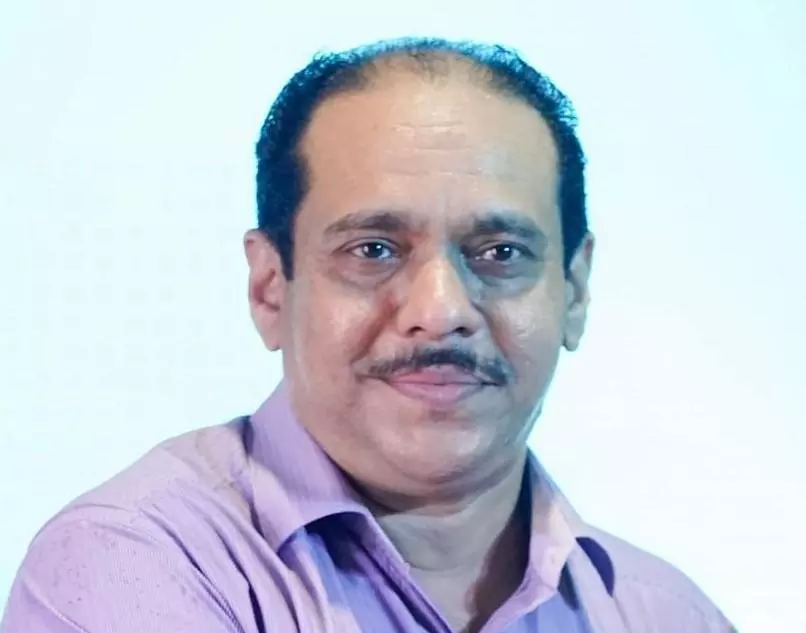
Do we need this tea?
text_fieldsI began my civil service career as a sub-collector in Perinthalmanna, Malappuram district in Kerala. There were about 20 employees in the sub-collector's office, and we all lived together like a family. Sixty per cent of the area of Malappuram district fell under the Perinthalmanna sub-division. This was a region bearing all the pride and beauty of ancient Valluvanad in every sense. It is a diverse, culturally rich region that includes the Thirumangalam temple in Angadipuram, the Poothanam Illam, the Pattambi-Santhapuram Muslim institutions, and many Muslim mausoleums. The people of that place were simple-minded. Many heart-warming memories of my life are still associated with Perinthalmanna.
There was a busy official life there with hearings and court proceedings. The employees who were in me helped me with all of such tasks. But I am reminded of one person who was in the team in the early days. He was far ahead in educational qualifications, but he did not have a precise opinion on any of the files. He had a habit of putting notes that wouldn't convey anything clearly. I thought it might be because he did not have experience, but I could see that when it came to his own matters, he had precise views. Thus the files that came through him meant double work for me. I had to spend more time on them because there were no definite notes. He would also disappear from time to time, with no habit of informing leave in advance. He would come later and give one excuse after another, and I would have to approve his leave without a choice. Other employees had warned me about his nature many times. When it went beyond limits, I would scold him, and he would listen to it standing indifferently.
In the meantime, he was transferred to his hometown. It was a busy time. When I heard about the transfer, I said, "It's good that you have been transferred to your hometown, but you should try to change all your old habits. You should pay attention to writing clear opinions on files. We have a busy time here now. You should help for a few more days before you go."
That person, who had never turned around and said a word about anything for so many days, reacted sharply that day. "I have to go tomorrow; I have to be released. Otherwise, what you are doing will be injustice." An indirect threat! When I shared the issue with other employees, they said in one voice, "It is better to let him go. It is difficult for us to continue here as he only looks after only his own affairs." I also felt that it was better for the person to leave to maintain the unity of this group, even though one employee would be reduced. The very next day, he was released.
Years later, after I got into senior positions, a subordinate officer asked me about him. Did you work with this person? A faint memory flashed in me. I asked if he was referring to someone who did not look at the files correctly and did not take a stand. The officer said in surprise, "It is the same person, he is still the same. And now he is under suspension too. "
"The chances of suspension are very few for those who beat about the bush; they do not sign anywhere, they do not take a stand in anything. Then how did it happen?" I was curious.
"He will not do the required work properly; at first, it was covered by the overwork of others. Then it reached a point when colleagues stopped cooperating. He became isolated in the office. A blunder that happened in the meantime led to the suspension. As soon as the news flashed, someone even distributed sweets in the office," he added.
This incident has some lessons and warnings for everyday life. A person can live without any commitment to those around him, without any responsibility for anything. A person can pull on for a few days by putting all the responsibilities on the shoulders of others and looking after merely his own affairs. This kind of people abound around us. After we have moved to the nuclear family system, the warmth of togetherness has drained from many and people have been largely confined to themselves. One such person is enough to disrupt the rhythm of a community. They will be like a rotten mango among a hundred ripe mangoes in a box. Such people are a burden to any community. We can see a few people of this nature in our schools, colleges, and offices.
They have nothing to offer to society. No one has any hope in them. When they face any setbacks, others will look on indifferently. They will also be forgotten forever. Being responsible and committed to society is an essential quality of a winner. The belief that one can achieve everything alone is also a complete misconception. It is the collective efforts that have made great successes possible.
Here is a quote from the famous Russian novelist Dostoevsky, tinged with sarcasm:
“I say let the world go to hell, but I should always have my tea.”
― Fyodor Dostoevsky, Notes from Underground.
The point to ponder is: do we need this tea?

















